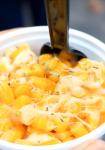The tribunal appointed by the Association of Tennis Professionals (ATP) found Rusedski not guilty, ruling that the ATP could have been at fault for distributing the tablets that had caused his positive test for nandrolone last July.
The ruling was a blow to the administrators of the sport who have repeatedly vowed to come down hard on offenders.
Within minutes of the finding being made public on Wednesday, the ATP embarked on a damage-limitation exercise, vowing to beef up its efforts to identify the cause of levels of nandrolone discovered in anti-doping samples last year.
| |||||||||||
"It's a major worry," WADA director-general Dave Howman said. "There doesn't seem to be anything like it in any other sport. There is something very strange out there."
The ITF, organisers of the four grand slam events and Davis Cup, also made clear their concern.
"The ITF respects the decision made by the Independent Tribunal in the Greg Rusedski case but regrets the climate that currently exists in our sport with regard to the use of supplements that ultimately led to the charges levelled against Rusedski, Bohdan Ulihrach and six others," a statement said.
"The ITF fully supports the principles of the Tennis Anti-Doping Programme and our partners, the ATP and WTA Tour, but it is also our belief that tennis must send a stronger message to players and to the public about how seriously our sport takes issues related to doping."
The ATP's response to the Rusedski tribunal's finding was to announce that two new experts had agreed to join its investigation into the nandrolone findings.
The ATP said it will also ask WADA to name a third member of the group.
Peter Hemmersbach, who heads the doping analysis section at the Hormone Lab of the Aker University Hospital in Norway, and Robert Ellicott, former Australian Solicitor General and Attorney General, have joined the investigation.
Rusedski was the eighth ATP player who had tested positive in cases involving metabolites of nandrolone or its precursors dating back to August 2002.
PREVIOUS CASES
Tennis Anti-Doping Programme tribunals dismissed seven previous positive cases in the summer of 2003 after they determined that the ATP was not allowed to enforce its anti-doping rules due to the ATP's practice, halted in May 2003, of distributing nutritional supplements to players.
On Wednesday an eighth Tennis Anti-Doping Tribunal rendered a similar judgement, dismissing the charges against Rusedski using that same legal principle.
Howman said the fact that Rusedski was cleared on these grounds was a concern.
"The tribunal related the Rusedski case to the seven previous ones and seems to have accepted the premise that the positive test was also a result of contaminated electrolytes given to the players by ATP trainers," Howman said in a statement.
"The fact that another case has now been adjudicated based on the same premise is greatly disturbing, particularly if it is proven to be incorrect."
Mark Miles, the ATP's chief executive officer, said the tribunal ruling underscores the problem of nandrolone contamination that had been identified last year.
"To date, the investigation has included interviews with more than 100 individuals, including players, officials and experts, along with thorough examination and analysis of all available data," he said.
"Given that low-level trace occurrences appear to be continuing, we felt it important to re-double our efforts to identify the cause of these test results.
In addition to the seven players who had tested positive -- plus Rusedski -- a number of other player samples have shown low-level trace readings of nandrolone or its precursors at levels so low that they were defined by the laboratories as not being doping offences.
Recent testing from several 2004 tournaments indicates that the occurrence of low levels in anti-doping test samples continue. There have been no new nandrolone positive samples since Rusedski's case but 16 low-level trace readings, which are not doping violations, have been identified in 2004 tests.
"The Rusedski tribunal concluded that he should have received personal notification of the risk of taking an electrolyte supplement previously distributed by ATP trainers, and that the ATP notices posted in the player newsletters, player intranet website and locker rooms were not adequate," Miles said.
"We respect the authority and independence of the tribunal and are satisfied that the process was conducted fairly."
Whether the ATP is satisfied or not seems beside the point. The Rusedski case highlights a number of unanswered questions concerning doping in tennis.








 © 2025
© 2025